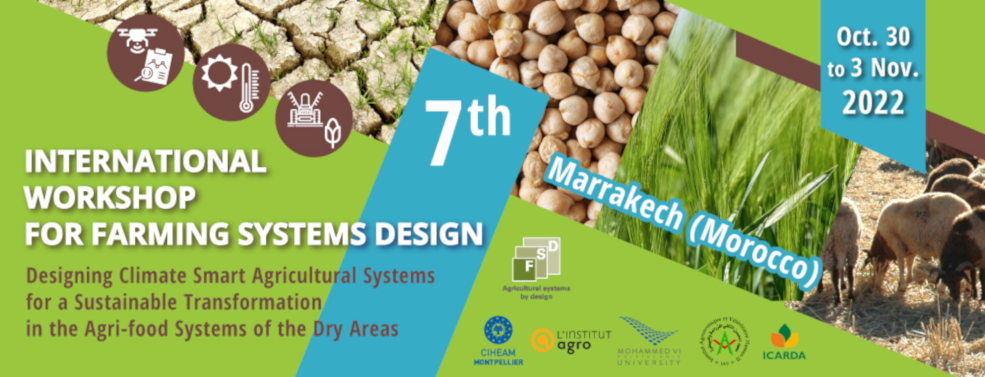
|
|
|
FSD7 Webinars 2021 > Webinar 2Designing climate smart and resilient cereal-livestock based farming systems for food and nutrition security in the drylands of Africa and Asia23 March 2021: 10:00AM to 12:00PM (GMT+2)Chaired by Zvi Hochman (CSIRO, Australia) and Lamiae Ghaouti (IAV Hassan II, Morocco) Session objectivesFarmers design their farming systems by manipulating their crop-livestock balance, cropping intensity, the diversity of their crops and crop types and the level of exogenous inputs within the limits of their land, labour and other resources. Will dryland farming systems that have evolved to be resilient to historical weather patterns and socio-economic circumstance stand the test of time over the next thirty years or will transformational changes be required to adapt to a future climate in 2050 and beyond? Dryland agriculture is both vulnerable to the impacts of global warming and a significant contributor to the greenhouse gas (GHG) emissions that cause it. To be resilient to global change, farming systems need to achieve household food security and nutrition goals while reducing vulnerability to a warmer and increasingly variable climate. To be climate smart, these systems will balance these objectives with the need to reduce GHG emissions and to conserve natural resources. This webinar will discuss issues, challenges and case studies relating to co-design of resilient climate smart cereal-livestock farming systems. Program and speakers
Help contact for ZOOM during webinars : fsd7-help-ZOOM@sciencesconf.org
Register online until Thursday, March 18, 2021 |


